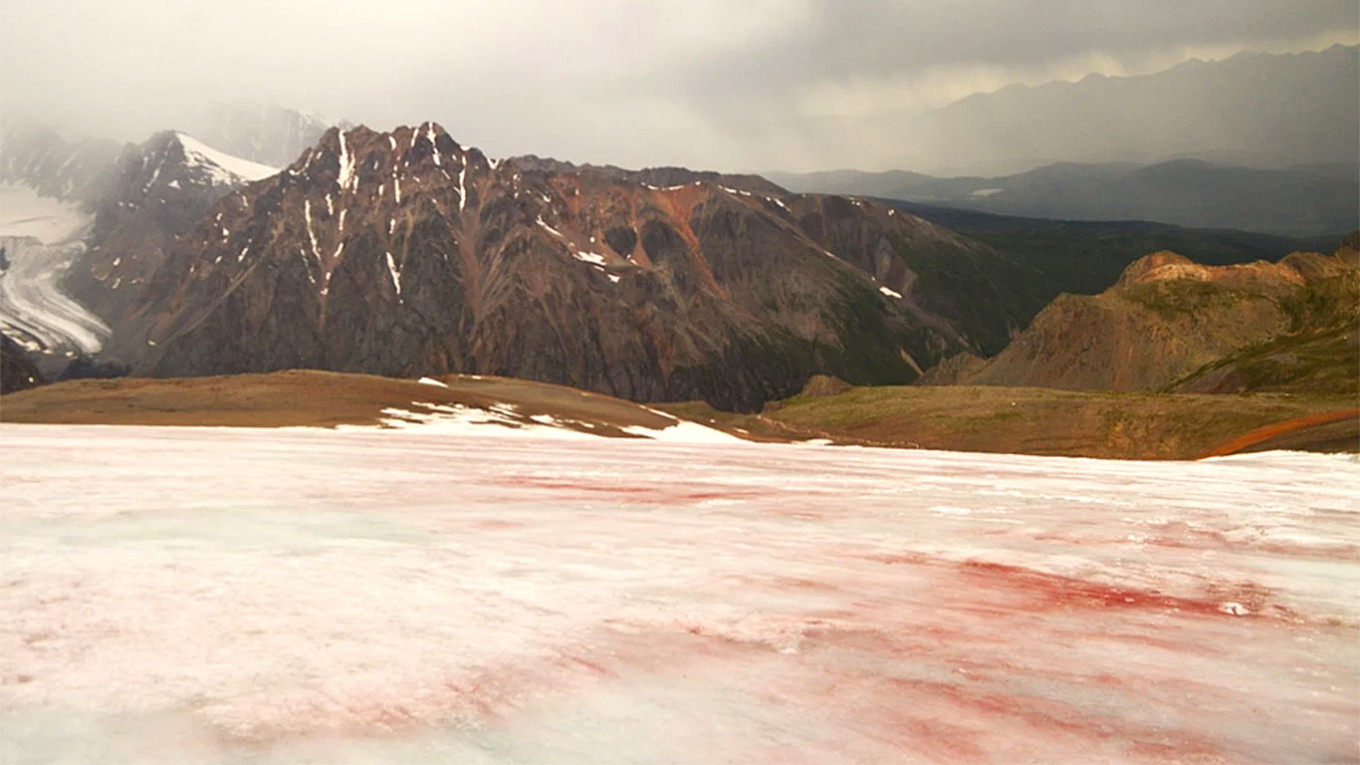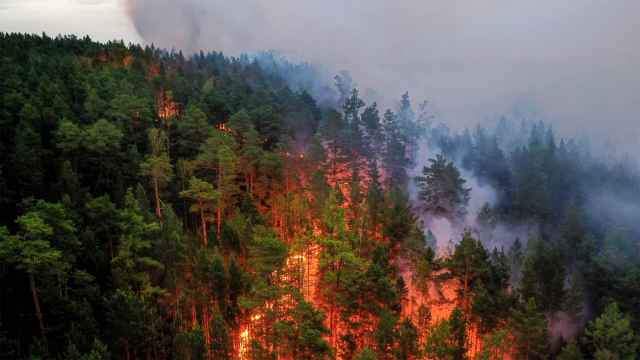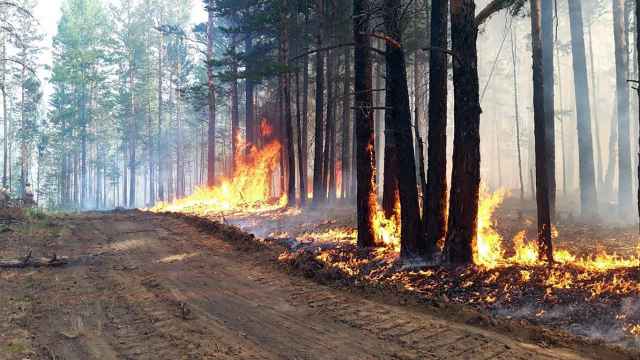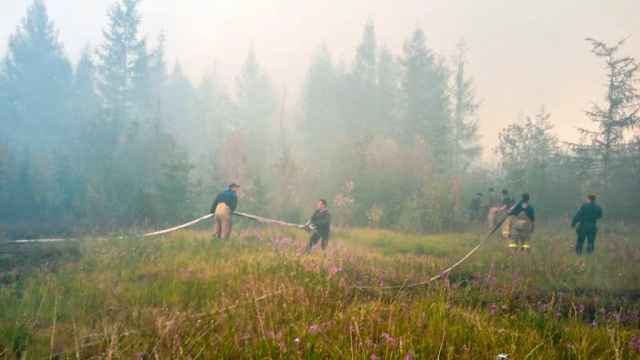A Siberian glacier has turned crimson red from algae bloom, raising the likelihood of even faster ice melt than at the current rate triggered by climate change, Russian scientists warned Monday.
Red algae covers glaciers in the Altai Mountains near Russia’s borders with Kazakhstan and Mongolia every year, Tomsk State University’s (TSU) Faculty of Geology and Geography said in a statement.
“But such a large-scale phenomenon has not been observed in more than 10 years,” said Alexander Yerofeyev, the head of TSU’s Laboratory of Glacioclimatology.
Footage from his recent expedition posted on the university’s YouTube page showed streaks of red across a large area of the Vodopadny glacier.
The phenomenon, known as “watermelon snow” or “blood snow,” is a common summertime occurrence in alpine and coastal polar regions around the world.
Yerofeyev said a sample of the red algae collected from the Vodopadny glacier was sent for identification to TSU’s biology institute.
He hypothesized that the samples are likely cold-loving algae called Chlamydomonas invalis, which are known to give the snow a red pigmentation, darkening the surface of a glacier and contributing to accelerated ice melt.
The glacier melt would further contribute to the ongoing loss of ice in the group of glaciers known as Aktru, which includes the Vodopadny glacier. One of the group’s glaciers, the Leviy Aktru, has lost more than 25% of its mass over the past 60 years, according to TSU.
The algae appear to have thrived in the 30-year record snowfall that remained in the Altai glaciers well into July, Yerofeyev said, adding that TSU scientists are yet to definitively establish the cause of the mass algae bloom.
A Message from The Moscow Times:
Dear readers,
We are facing unprecedented challenges. Russia's Prosecutor General's Office has designated The Moscow Times as an "undesirable" organization, criminalizing our work and putting our staff at risk of prosecution. This follows our earlier unjust labeling as a "foreign agent."
These actions are direct attempts to silence independent journalism in Russia. The authorities claim our work "discredits the decisions of the Russian leadership." We see things differently: we strive to provide accurate, unbiased reporting on Russia.
We, the journalists of The Moscow Times, refuse to be silenced. But to continue our work, we need your help.
Your support, no matter how small, makes a world of difference. If you can, please support us monthly starting from just $2. It's quick to set up, and every contribution makes a significant impact.
By supporting The Moscow Times, you're defending open, independent journalism in the face of repression. Thank you for standing with us.
Remind me later.






